In his second to last State of the Union address, President Obama stated that “no challenge—poses a greater threat to future generations than climate change.” Brookings experts Joshua Meltzer, Timmons Roberts and Philip Wallach analyze what the President had to say on climate and energy policy.
Joshua Meltzer: Climate Change is Real, Get with the Program
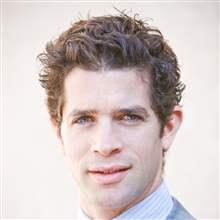 Whereas in President Obama’s previous State of the Union speeches climate change received little attention, this year President Obama made a strong case for the importance of addressing climate change, calling it the greatest threat to future generations. According to Obama, climate change will impact lives in the US and globally and will raise new challenges for the US. Domestically, the US will see hotter summers and drier conditions. Globally, climate change presents new security risks for the US, as already fragile states are further stressed by rising temperatures, conflicts over water and climate change induced migration.
Whereas in President Obama’s previous State of the Union speeches climate change received little attention, this year President Obama made a strong case for the importance of addressing climate change, calling it the greatest threat to future generations. According to Obama, climate change will impact lives in the US and globally and will raise new challenges for the US. Domestically, the US will see hotter summers and drier conditions. Globally, climate change presents new security risks for the US, as already fragile states are further stressed by rising temperatures, conflicts over water and climate change induced migration.
President Obama gave short thrift to those who deny the science of climate change, observing that like the climate sceptics, he is also not a scientist but that the best scientists in the U.S. are all saying that human activity is affecting the climate. He also made clear that he would fight action by Congress to overturn the EPA’s Clean Power Plan, a key part of the Administration’s effort to reduce CO2 emissions from existing coal-fired power stations.
The recent U.S.-China agreement to reduce emissions was a prominent example of how the US can more effectively exercise global leadership when it shows climate change leadership at home. Being able to point to action by China to cap its CO2 emissions by 2030 also seeks to head off Congressional concerns that aggressive climate change action by the US without similar action by other countries undermines the competitiveness of US industry. President Obama claimed that the US-China deal on climate change has led other nations to up their ambition for cutting CO2 emissions and that this is preparing the way for a successful outcome at the UN climate change meeting in Paris later this year.
Timmons Roberts: SOTU 2015 and Climate Change
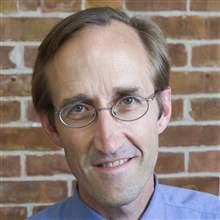 In the State of the Union, President Obama stated rightly that “today we are freer from dependence upon foreign oil than we’ve been in 30 years.” Much later in the speech he remarked that “the Pentagon says that climate change poses immediate risks to our national security. We should act like it.” How do we square these two points?
In the State of the Union, President Obama stated rightly that “today we are freer from dependence upon foreign oil than we’ve been in 30 years.” Much later in the speech he remarked that “the Pentagon says that climate change poses immediate risks to our national security. We should act like it.” How do we square these two points?
Energy independence for America is good news on the short-term security front, but not necessarily in terms of our long-term security as inhabitants of a linked climate-societal system. Key decisions made now will reverberate for decades or even centuries, as we can build infrastructure for a safe future or recklessly continue with business as usual. Obama mentioned installing solar energy, but renewables work is still lagging badly below what is needed and what new jobs could be created with a green infrastructure push. Instead, we are fracking our way into energy “security” as a nation, while creating an unknown set of future local and global health and environmental problems. As the President said, “let’s set our sights higher than a single oil pipeline,” referring, of course, to the proposed KeystoneXL megaproject. It’s time to set our sights higher than fracking.
America needs continued leadership on the difficult political issue of climate change in 2015. The administration’s joint announcement with China of targets for carbon emissions reductions in late fall—and his pledge to the Green Climate Fund—were very well-timed and positive efforts to encourage other countries to step up during this pivotal year. The meeting in Paris this December marks the deadline for sealing a meaningful global deal: we have a lot of negotiating to do before then. Obama’s leadership is needed; Congress needs to follow or get out of the way.
Philip Wallach: The Political Difficulties of the Administration’s Climate Plan
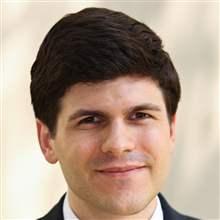 In three paragraphs of last night’s State of the Union address, President Obama helped to clarify his administration’s current thinking on climate change: proceed full speed ahead with existing tools, think big on the international stage, and resolutely ignore all the legal and political stumbling blocks that might cause problems. As the administration sees it, U.S. resolve on the issue—now demonstrated through unwavering commitment to the Environmental Protection Agency’s Clean Air Act rulemakings, most importantly the pending Clean Power Plan—provides the best foundation for international progress, and last year’s historic agreement with China is a demonstration of the strategy’s soundness.
In three paragraphs of last night’s State of the Union address, President Obama helped to clarify his administration’s current thinking on climate change: proceed full speed ahead with existing tools, think big on the international stage, and resolutely ignore all the legal and political stumbling blocks that might cause problems. As the administration sees it, U.S. resolve on the issue—now demonstrated through unwavering commitment to the Environmental Protection Agency’s Clean Air Act rulemakings, most importantly the pending Clean Power Plan—provides the best foundation for international progress, and last year’s historic agreement with China is a demonstration of the strategy’s soundness.
Given the administration’s (entirely defensible) perception that they can find no meaningful cooperation on climate change issues on the Republican side of the aisle, this strategy makes some sense; trying to significantly reorient our approach to reducing greenhouse gas emissions in pursuit of more efficient policy tools (i.e., putting a price on carbon) would be making the perfect the enemy of the good. But I fear that depending on the Democratic Party’s ability to see through decades-long Clean Air Act programs in the teeth of Republican opposition is a recipe for disappointment—especially because Republican and industry complaints about the unwieldiness of the Clean Air Act for these purposes are quite meritorious. The Obama administration has committed America to reaching ambitious emission reduction goals (that may be even more difficult to achieve than anticipated because of recent decreases in fossil fuel prices), but their plan for achieving those goals relies on everything breaking their way. It is as if they plan to win a basketball game by making every single shot. It would be wiser to acknowledge that political obstacles are the most difficult ones in fighting climate change and devise a better way forward that both parties would commit to for the long haul. Such a solution sounds regrettably farfetched during the 114th Congress—but that is just an indication of the seriousness of the problem, and I’m afraid that ignoring it isn’t any way to make lasting progress.
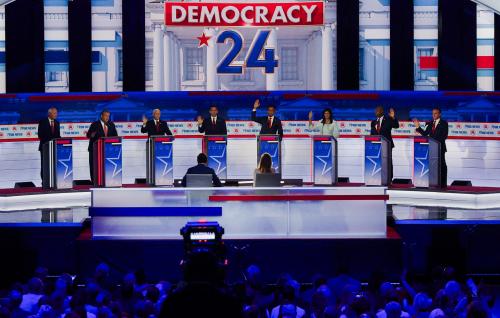
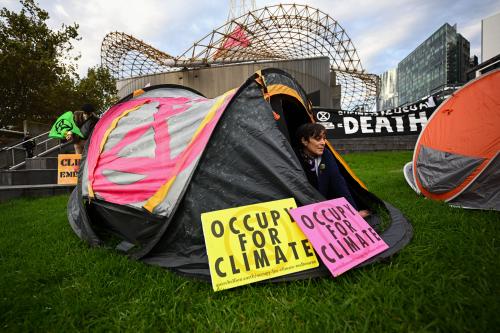
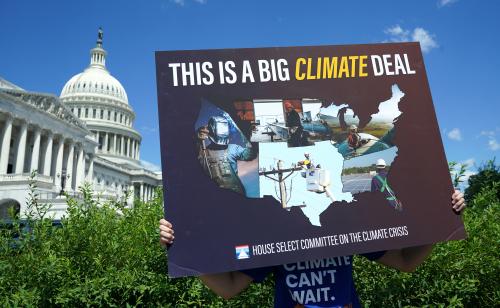
Commentary
The President’s State of the Union Address: What You Need to Know About Climate and Energy Policy
January 21, 2015